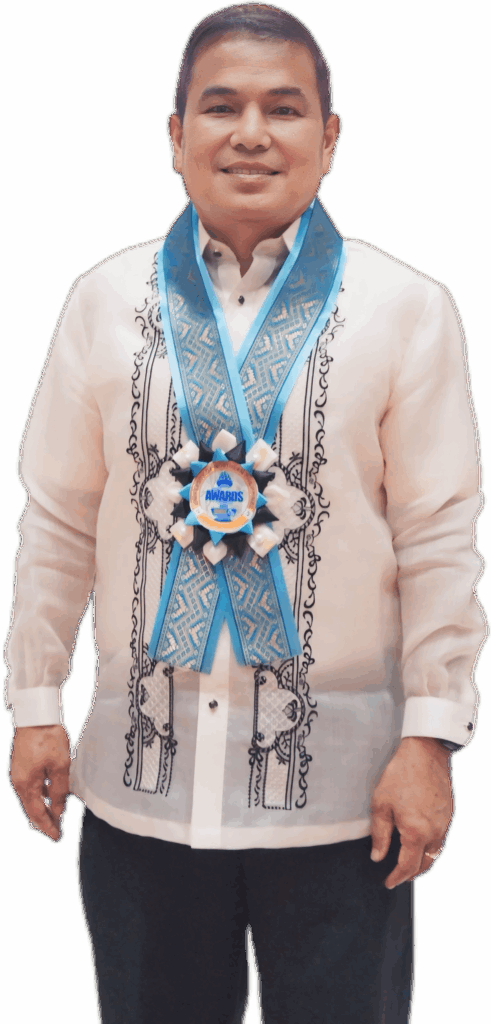Publication
Abstract:This study explored the learning progression in Algebra of students from a cohort perspective and individual perspective. Utilizing the cross-sectional and longitudinal research methods and employing the Rasch measurement modeling, the progress in the Algebraic performance of the 592 students (Grade 8, Grade 9 and Grade 10) in a school division in the Philippines was examined four times in around one academic year. Analyses revealed that the students only have a low level of performance in Algebra. Through the Rasch analysis, there was a progress in students' Algebraic performance from a cross-sectional perspective. Their ability estimates increased with the grade level. The performance of the students also developed from the individuals' perspective. More students displayed progress while some retrogressed in their performance in the algebraic test. Moreover, from an individual perspective, the algebraic students' performance developed over the period in all grade levels. There is also an increase in the mastery of the students in the different tasks in the test. The answers of the students are dependent on their ability, as predicted from the Rasch model.
Keywords:Algebra, Cross-Sectional, Learning Progression, Rasch Analysis
Abstract:This study focused on the faculty members’ readiness to use flexible learning at a state university in the Philippines. There were 547 faculty members from all levels completed an online survey questionnaire using the descriptive research method. The faculty members are ready regarding the availability of IT tools and internet connectivity. Still, they are not so much prepared as to their knowledge and competence on using flexible learning. The majority have wireless connections but are considered intermittent. Most of the faculty members use books as their teaching materials. Only very few have learning materials like modules, worktexts, manuals, and workbooks. Most of them are still oriented to face-to-face communication with students and are not familiar with the other equally responsive pedagogies requiring less data usage, or no data usage. Many faculty members have tried using online learning delivery modes, but they are still not confident using them. They have little knowledge about learning management systems and are moderately competent in using them. Based on the findings is the capability-building program which was already implemented and sustained.
Keywords:Capability building; Flexible learning; Learning delivery modes; New normal; Readiness
Abstract:The United Nations, including the Philippines, adopted the 2015 Sustainable Development Agenda, which includes seventeen Sustainable Development Goals (SDGs) and 169 targets to be achieved by 2030. The University of Northern Philippines (UNP) takes pride in its image as an institution of global quality. As a higher education institution, it is committed to contribute to the attainment of the Sustainable Development Goals (SDGs) of the United Nations and the Philippines AmBisyon Nation 2040 goals in improving a lot of humanity and the world. This study aimed to analyze the mainstreaming of AmBisyon Natin 2040 and SDGs in UNP. It described activities under the 12 University’s development goals aligned to the AmBisyon Natin 2040 and SDGs and proposed a plan to sustain and strengthen them. Documentary analysis revealed that the University development goals, with feasible, practical, and doable activities, are allegiance to all the goals of the Philippines' AmBisyon Natin 2040 and the United Nations' Sustainable Development Goals. Other state universities and colleges may replicate this research undertaking to have a written account and inventory of their endeavors as a testament of compliance and commitment to achieving the goals of AmBisyon Natin 2040 and SDGs
Keywords:mainstreaming, sustainable development goals, AmBisyon Natin 2040, higher education.
Abstract:Using the theory of change, the impact of the Science Teachers Enhancement via Extension (SciTEE) Project of a state university in the northern part of Luzon, Philippines, was evaluated. Through the mixed method of research, the study investigated the extension profile, project level of implementation, outputs, outcomes, and impact after being implemented for five years. The participants of the different extension activities were the respondents. The process of triangulation was utilized to gather the data needed. Through the project, the beneficiariesenriched their knowledge of selected science content, developed their ICT skills in teaching, acquired knowledge and skills on the proper use of science equipment, and developed their skills in research and in making instructional materials. The Project contributed to the capacity building of the beneficiaries, their social and economic development, lifelong learning skills, and generally contributing to the global goal of preparing teachers for 21st-century learning.
Keywords:21st-century teaching skills, model of change, extension program, teacher enhancement, impact assessment
On-going
- Performance Efficiency of a State University in Northern Philippines: A Data Envelopment Analysis (E-23-9 )
- Assessing the Readiness of UNP for QS Star University Ratings (E-25-19)
- Innovative ABEL Research and Development (InABEL) Project (SS-23-30)
- Socio-Economic Profiling of Weaving Industry in Ilocos Sur (SS-2330a)
- Characterization of Abel Products in Ilocos Sur (SS-2330b)
Presentation
Sorry, but there’s nothing here.
Citations
- A Cross-Sectional Study of Students’ Learning Progression in Algebra (2021) https://journals.sagepub.com/doi/abs/10.1177/07356331211027387
- A Cross-Sectional study of students’ learning progression in algebra (2022) DOI: 10.1109/InCIT56086.2022.10067480
- A Cross-Sectional study of students’ learning progression in algebra (2022) https://www.researchgate.net/publication/368810478
- Sexual Perception and Behavior: Gender Differences among Married Ilocanos (2020) https://www.tandfonline.com/doi/full/10.2147/NRR.S380630
- A Cross-Sectional study of students’ learning progression in algebra (2023) https://digitalcommons.lindenwood.edu/dissertations/755/
- A Cross-Sectional study of students’ learning progression in algebra (2023) https://digibug.ugr.es/bitstream/handle/10481/81100/42-49_JETT1401004ID1076.pdf?sequence=1&isAllowed=y
- Tracer Study on the Master of Science in Teaching Physics Graduates (2022) https://ajehd.unp.edu.ph/index.php/ajehd/article/view/47
IP Registration
Sorry, but there’s nothing here.
